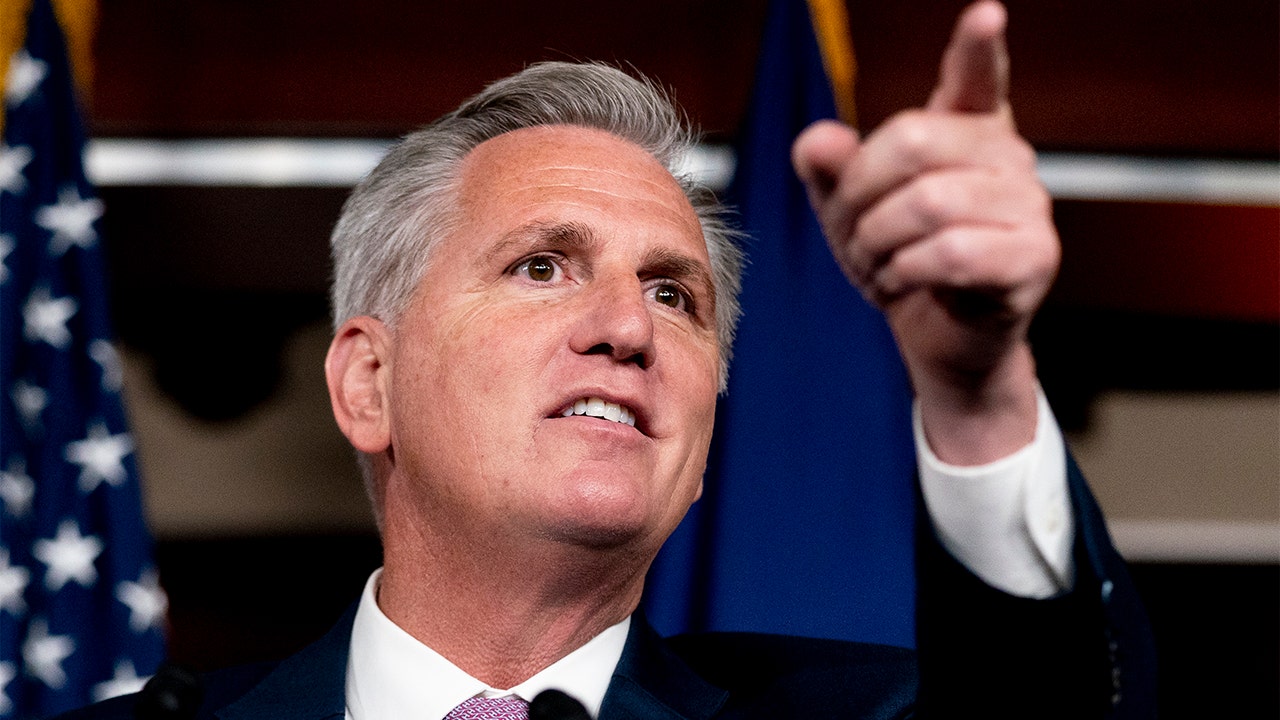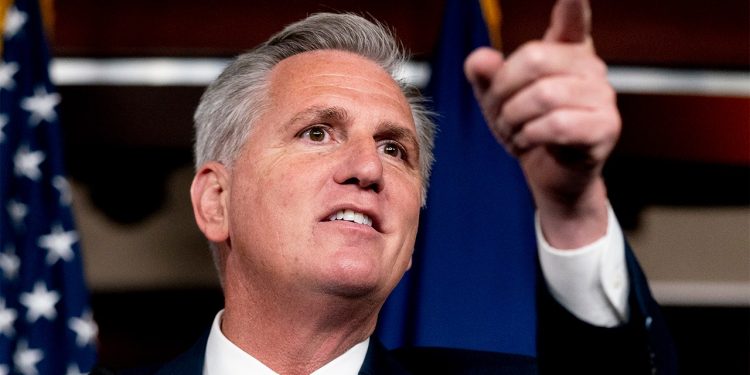
House Speaker Kevin McCarthy’s decision to end proxy voting is more than a symbolic gesture to ensure lawmakers are in the Capitol serving their constituents – it suddenly makes the physical act of showing up to work a top priority for Republicans and Democrats in a closely divided House.
At the start of the 118th Congress, Republicans have 222 votes to Democrats’ 212 votes. That puts a premium on attendance – if a handful of Republicans get sick or take the day off, it may prevent voting on bills that need every GOP vote. Too many absent Democrats could tempt Republicans to push the boundaries on what they can pass.
An example of the importance of each vote could be seen in the frantic week-long voting exercise to pick a House speaker. As the voting commenced, Democratic leaders stressed to their members that everyone was expected to be present, as absences would lower the number of votes McCarthy needed to secure the gavel.
‘Members must remain on the Floor until the Election for Speaker of the House is completed and until directed otherwise by the Whip’s office,’ the notice read. ‘Members must contact the Whip’s office immediately if they expect to be absent at any time.’
In the penultimate vote that McCarthy thought would give him the gavel, Republicans miscounted and fell short by a single member – McCarthy won 216 votes, but 217 were needed. That set off a furious round of negotiating on the floor as McCarthy lobbied holdout Republicans for their vote.
A final vote was needed, and the six remaining GOP holdouts voted ‘present,’ which effectively lowered the number of votes that counted by six and allowed McCarthy to win a majority with 216 votes.
Those are the sorts of close calls that House leaders can expect to wrestle with given the narrow GOP majority and the new requirement for members to be in the House chamber in order to vote. It’s a management challenge that Democrats have not had to wrestle with since early 2020, when then-Speaker Nancy Pelosi allowed members to vote from a distance.
As lawmakers return to work next week, both parties signaled they were ready to return to the new normal of going into the office again. Republicans indicated they would fare better under the new schedule.
‘It’ll be a tough adjustment for House Democrats to now have to show up for work both for votes and committee hearings and markups,’ a senior GOP aide told Fox News Digital. ‘The days of voting from a boat in a committee markup or handing over your vote to another member of Congress in order to attend a space launch are over.’
That’s a reference to May 2020, the first time Pelosi allowed proxy voting. Dozens of Democrats voted remotely, and former Rep. Charlie Crist, D-Fla., and current Rep. Darren Soto, D-Fla., both tweeted on the same day that they were at a SpaceX launch that same day.
But House Minority Whip Katherine Clark, D-Mass., said the Democrats’ near-perfect attendance record in the 15 votes for House speaker, in which they voted for Minority Leader Hakeem Jeffries of New York every time, shows Democrats are up to the challenge.
‘As House Democrats have already demonstrated in the first two weeks of the 118th Congress, we are united, organized, and ready to get to work,’ Clark told Fox News Digital.

House Speaker Kevin McCarthy’s decision to end proxy voting is more than a symbolic gesture to ensure lawmakers are in the Capitol serving their constituents – it suddenly makes the physical act of showing up to work a top priority for Republicans and Democrats in a closely divided House.
At the start of the 118th Congress, Republicans have 222 votes to Democrats’ 212 votes. That puts a premium on attendance – if a handful of Republicans get sick or take the day off, it may prevent voting on bills that need every GOP vote. Too many absent Democrats could tempt Republicans to push the boundaries on what they can pass.
An example of the importance of each vote could be seen in the frantic week-long voting exercise to pick a House speaker. As the voting commenced, Democratic leaders stressed to their members that everyone was expected to be present, as absences would lower the number of votes McCarthy needed to secure the gavel.
‘Members must remain on the Floor until the Election for Speaker of the House is completed and until directed otherwise by the Whip’s office,’ the notice read. ‘Members must contact the Whip’s office immediately if they expect to be absent at any time.’
In the penultimate vote that McCarthy thought would give him the gavel, Republicans miscounted and fell short by a single member – McCarthy won 216 votes, but 217 were needed. That set off a furious round of negotiating on the floor as McCarthy lobbied holdout Republicans for their vote.
A final vote was needed, and the six remaining GOP holdouts voted ‘present,’ which effectively lowered the number of votes that counted by six and allowed McCarthy to win a majority with 216 votes.
Those are the sorts of close calls that House leaders can expect to wrestle with given the narrow GOP majority and the new requirement for members to be in the House chamber in order to vote. It’s a management challenge that Democrats have not had to wrestle with since early 2020, when then-Speaker Nancy Pelosi allowed members to vote from a distance.
As lawmakers return to work next week, both parties signaled they were ready to return to the new normal of going into the office again. Republicans indicated they would fare better under the new schedule.
‘It’ll be a tough adjustment for House Democrats to now have to show up for work both for votes and committee hearings and markups,’ a senior GOP aide told Fox News Digital. ‘The days of voting from a boat in a committee markup or handing over your vote to another member of Congress in order to attend a space launch are over.’
That’s a reference to May 2020, the first time Pelosi allowed proxy voting. Dozens of Democrats voted remotely, and former Rep. Charlie Crist, D-Fla., and current Rep. Darren Soto, D-Fla., both tweeted on the same day that they were at a SpaceX launch that same day.
But House Minority Whip Katherine Clark, D-Mass., said the Democrats’ near-perfect attendance record in the 15 votes for House speaker, in which they voted for Minority Leader Hakeem Jeffries of New York every time, shows Democrats are up to the challenge.
‘As House Democrats have already demonstrated in the first two weeks of the 118th Congress, we are united, organized, and ready to get to work,’ Clark told Fox News Digital.
















